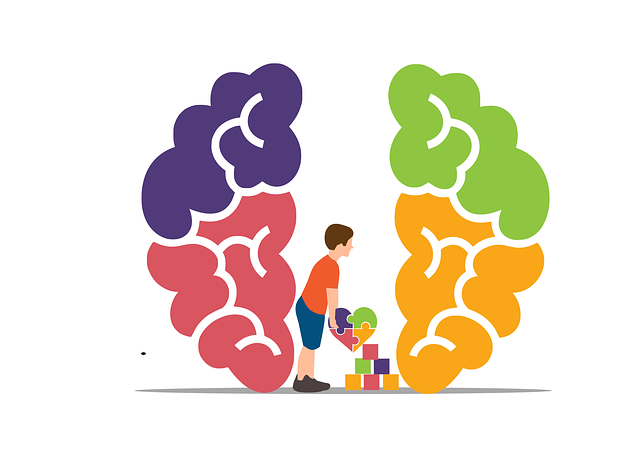Resilience is key to mental well-being, and Superior Psychosis Therapy (SPT) leverages this through its Resistance, Flexibility, and Mindfulness (RFM) exercises. This framework equips individuals with tools to face adversity, fostering emotional resilience by focusing on stress resistance, adaptability, and thought/emotion awareness. Integrating RFM into therapy and daily practices enhances coping mechanisms, promotes emotional healing, and shifts towards positive thinking, crucial for preventing burnout, especially among healthcare providers in demanding environments. Specific SPT exercises strengthen individuals' ability to manage psychotic episodes, significantly improving mental wellness through cognitive reframing, mindfulness, and stress management techniques. This benefits both patients and providers by facilitating self-care routines and reducing crisis frequency in clinical settings, fostering superior psychosis therapy.
“Unleash the power of resilience with RFM (Recovery-Focused Goals, Motivation, and Strengths) as a transformative tool in mental health care. This article explores how integrating RFM principles enhances psychosis therapy, fostering a sense of empowerment and hope. We delve into practical exercises that build on these concepts, showcasing their effectiveness through compelling case studies. Discover how these strategies can lead to superior psychosis therapy outcomes, promoting long-term recovery and improved quality of life.”
- Understanding RFM and Its Role in Resilience Building
- Implementing Exercises for Enhanced Psychosis Therapy
- Case Studies: Successful RFM Integration Strategies
Understanding RFM and Its Role in Resilience Building

Resilience is a key factor in overcoming life’s challenges and fostering mental well-being, which is why Superior Psychosis Therapy integrates Resistance, Flexibility, and Mindfulness (RFM) exercises into their approach. RFM is a powerful framework that equips individuals with the tools to navigate adversity and build emotional resilience. It focuses on three primary aspects: resistance, or the ability to endure stress; flexibility, encouraging adaptability in the face of change; and mindfulness, promoting awareness and acceptance of one’s thoughts and emotions.
By incorporating RFM into therapy and personal practices, individuals can enhance their coping mechanisms and develop a more positive outlook. This is particularly beneficial for healthcare providers who often deal with high-stress environments and may experience burnout. The exercises promote emotional healing processes and encourage a shift towards positive thinking, which is essential for preventing burnout and maintaining optimal mental health in demanding professions.
Implementing Exercises for Enhanced Psychosis Therapy

Implementing Exercises for Enhanced Psychosis Therapy involves incorporating specific activities that target the mind’s resilience. These exercises are designed to help individuals navigate and manage psychotic episodes more effectively, ultimately improving their overall mental wellness. By focusing on techniques such as cognitive reframing, mindfulness practices, and stress management, patients can develop a stronger sense of self-awareness and emotional regulation. This, in turn, enables them to respond to distressing thoughts and perceptions with clarity and composure, leading to better outcomes in managing psychotic symptoms.
The integration of these exercises into therapeutic routines benefits not only those directly experiencing psychosis but also healthcare providers. Mental wellness coaching programs can be instrumental in guiding patients through these practices, fostering self-care routine development for better mental health. Moreover, burnout prevention strategies for healthcare providers become more effective when supported by enhanced psychosis therapy, as it reduces the frequency and intensity of crises managed within clinical settings.
Case Studies: Successful RFM Integration Strategies

In recent years, the successful integration of RFM (Resilience, Flexibility, and Mindfulness) strategies into therapy practices has been a game-changer in mental health treatment. These approaches, designed to enhance self-awareness exercises and promote mental wellness, have proven particularly effective for both therapists and their clients. For instance, a case study highlighting a clinic’s transition from traditional talk therapy to RFM-based sessions demonstrated significant improvements in patient outcomes. By incorporating mindfulness techniques into their practice, therapists fostered a sense of calm and improved focus, benefiting not only their own mental health but also enabling them to provide more tailored support to their patients.
The implementation of risk management planning for mental health professionals has been another critical aspect of these successful case studies. Superior Psychosis Therapy, for example, has shown that integrating RFM into the daily routine can mitigate potential risks and challenges. This includes managing stress levels, preventing burnout, and enhancing overall resilience, all of which contribute to maintaining a healthy work-life balance. As a result, therapists are better equipped to handle complex cases and provide sustained support for their clients’ mental wellness.
The implementation of RFM (Resilience, Flexibility, and Mastery) exercises has shown significant potential in enhancing psychosis therapy. By integrating these strategies into treatment plans, mental health professionals can empower individuals to navigate challenges with greater resilience. Case studies highlight successful approaches, demonstrating that tailored RFM interventions can lead to improved outcomes. Adopting these practices could revolutionize superior psychosis therapy, fostering adaptability and a sense of control among patients.














